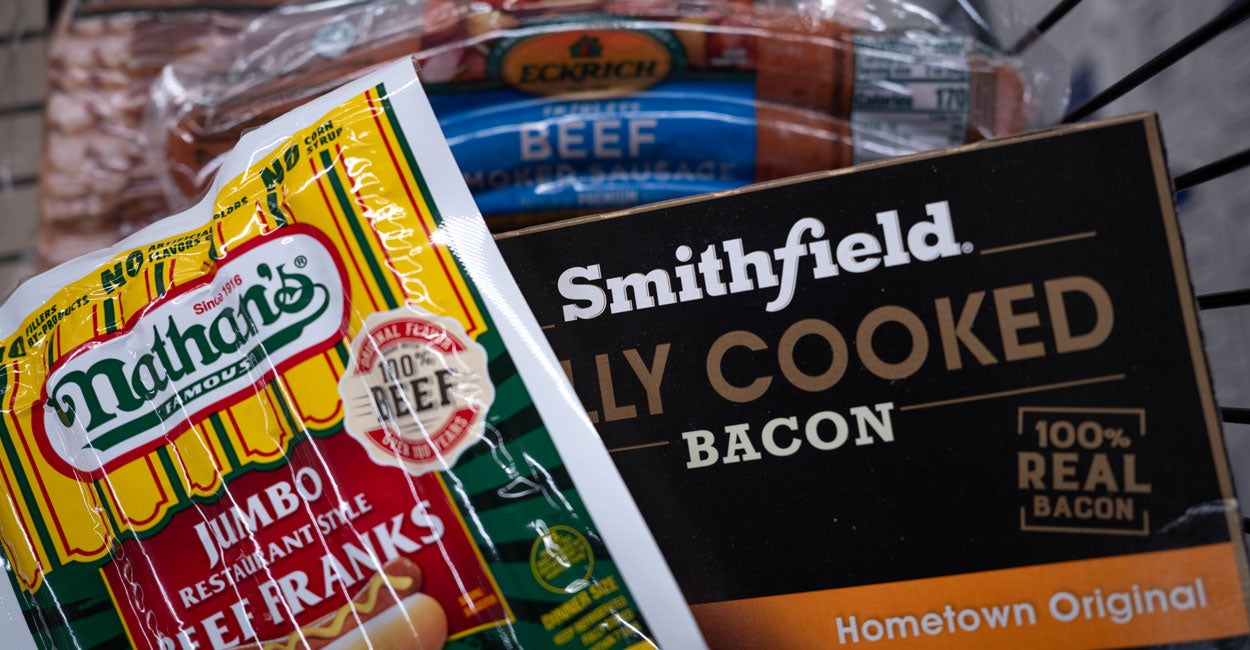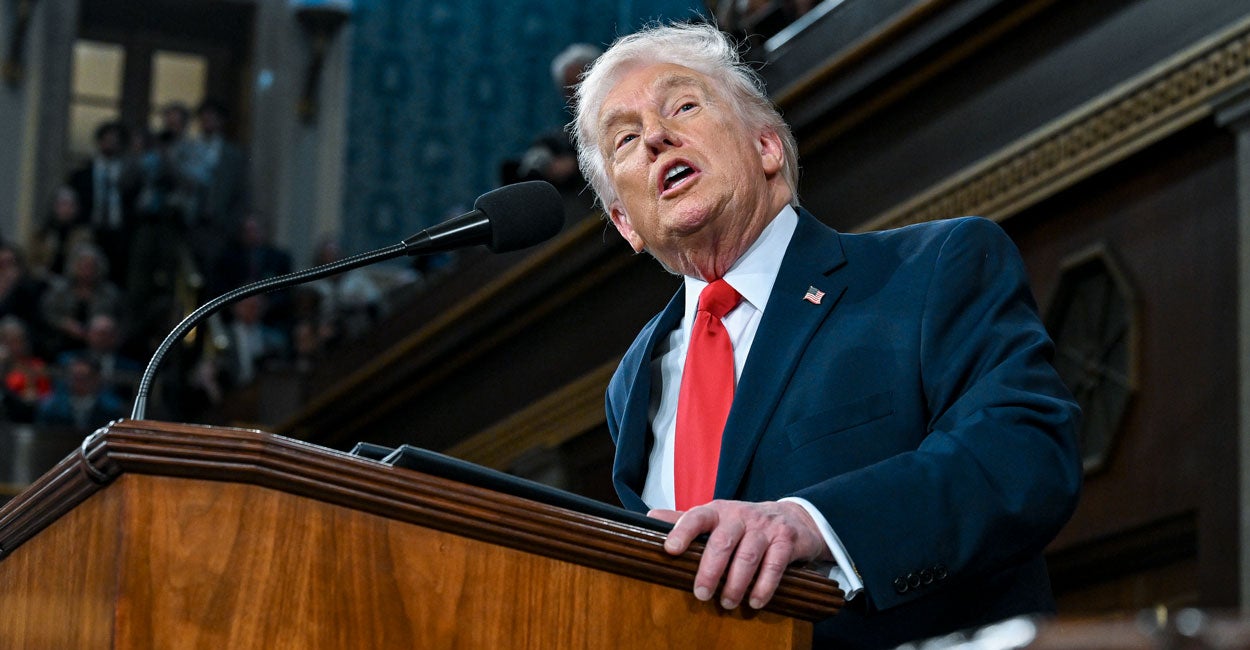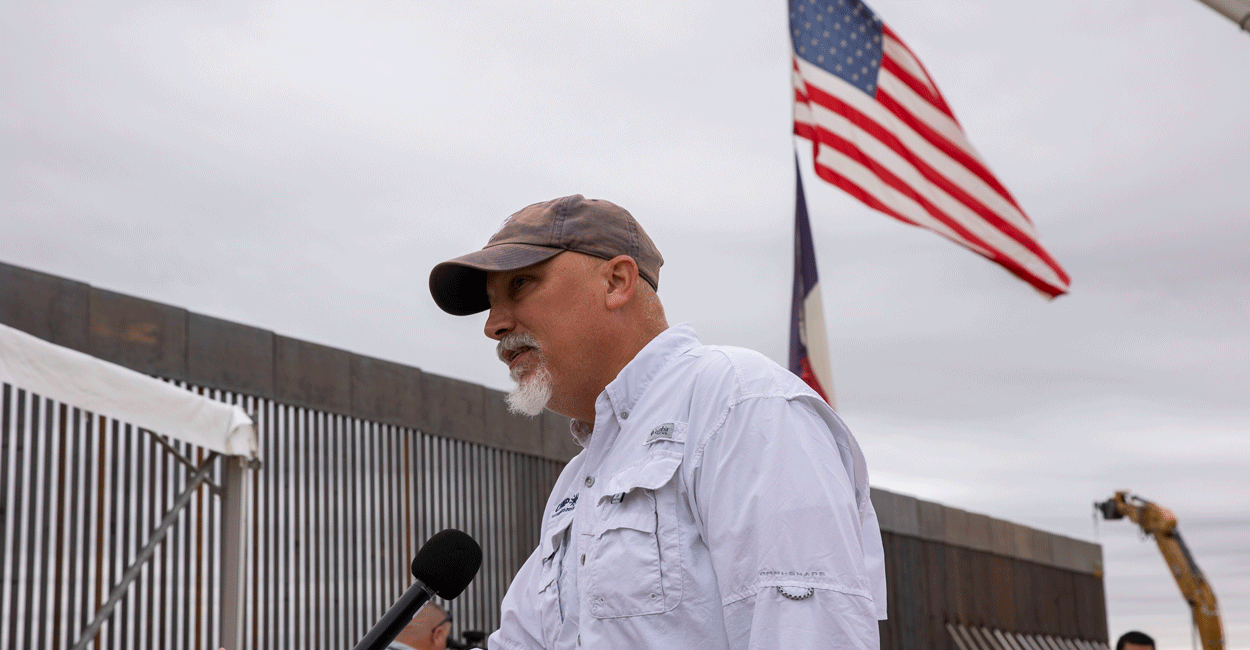China’s Hands Are in America’s Bacon, Hot Dogs. We Should Be Concerned, New Report Says.

American agriculture is roughly a $1.5 trillion annual industry, and China poses a critical threat to the sector, according to a new report.
Live Your Best Retirement
Fun • Funds • Fitness • Freedom
Over the years, China has expanded its involvement in America’s food system, such as in 2013, when the Chinese-owned company WH Group acquired Smithfield Foods.
Smithfield, a company largely known for its bacon, controls a quarter of U.S. pork processing, distributing products through brands such as Eckrich, famous for its sausages and deli meats, and Nathan’s Famous, the iconic hot dog brand, the America First Policy Institute explains in a new report, released Wednesday, detailing China’s threat to American agriculture.
“The Chinese ownership of Smithfield Foods, a formerly American-owned pork company with a presence in numerous states, raises significant concerns about food security and national security, and is a key example of [China’s] growing threat to America’s agricultural industry,” the report states.
Ambassador Kip Tom, vice chair of rural policy at AFPI, and Royce Hood, a policy analyst on AFPI’s China Policy Initiative, authored the 25-page report for the conservative Washington-based policy organization.
China has found its way not only into the ownership of U.S. food companies but also has a hand in the technologies farmers use and agricultural chemicals, as well as in the purchase of U.S. farmland, the report explains.
“There is no doubt that over time, the United States, and farmers, and agriculture have put our short-term prosperity ahead of our long-term security, trying to find cheaper supply chains to produce the products that we use … to produce crops, livestock, and many other products that come off American farms,” Tom told reporters during a press call Wednesday.
Farmland
“The land that these Chinese-owned American companies control represents another dangerous facet of this national security challenge,” the report explains.
Citing the Agricultural Foreign Investment Disclosure Act report, AFPI explains that “Chinese nationals or companies with primary Chinese ownership owned 277,336 acres of agricultural land in the United States,” as of 2023.
The land ownership opens a door for “surveillance and sabotage,” according to the report’s findings, and “facilitates [Chinese Communist Party intellectual property] theft directly on American soil.”
Drones
Drones and satellite imaging have become an important part of the agriculture sector and are used for things such as assessing and maximizing crop health, and China dominates the drone-manufacturing industry.
“The integration of drones with the capability to collect large amounts of data from U.S. agricultural processes and feed it to Chinese firms poses serious risks,” Tom and Hood warn.
Data collected by drones used to survey and assess U.S. farmland could be “fed to China’s government, shared among government agencies, and potentially weaponized against the United States,” they write.
Problems and Solutions
“Divestment” from Chinese-owned or -operated agriculture companies and technologies is the first step the U.S. should take to address China’s threat to the U.S. industry, Hood said.
“I can tell you, with the amount of outsourcing that we’ve done in chemistries around the world, our fertilizer production, computer chips around our trackers, everything, we are very vulnerable, and it’s time we take action now to bring back these supply chains to the United States,” Tom said.
It’s important to bring the various elements of the U.S. agriculture industry back to America because, as Tom explains, “with the amount of outsourcing that we’ve done in chemistries around the world, our fertilizer production, computer chips around our trackers, everything, we are very vulnerable.”
To bring the industry back to the U.S., there must first be an understanding as to why the industry moved not only to China, but all around the world, Tom said, before laying the blame largely at the feet of America’s “regulatory regime.”
Heavy restrictions on the agriculture industry make it “very difficult for companies to do business here in the United States, and the Chinese could rapidly jump into production of these different products and get them to us, the farmers in the United States.”
In addition to divestment from Chinese influence, Tom and Hood’s specific policy recommendations include banning the use of Chinese-manufactured drones for use in the U.S. agricultural industry and legislation at the state and federal level to prevent foreign adversaries from controlling U.S. farmland.
“A successful America First national security policy necessitates a robust confrontation” to China’s threat to the U.S. agriculture industry, as the report details.
The post China’s Hands Are in America’s Bacon, Hot Dogs. We Should Be Concerned, New Report Says. appeared first on The Daily Signal.
Originally Published at Daily Wire, Daily Signal, or The Blaze
What's Your Reaction?
 Like
0
Like
0
 Dislike
0
Dislike
0
 Love
0
Love
0
 Funny
0
Funny
0
 Angry
0
Angry
0
 Sad
0
Sad
0
 Wow
0
Wow
0













































































